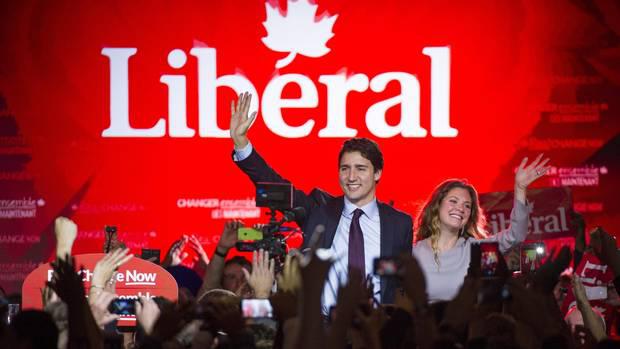
Liberals Win! Let's look at tax!
Now with a Liberal majority (congratulations), let’s look at their platform to try to figure out the possible tax implications.
But first… here is my take.
The Liberal Tax Plan is definitely an ‘income redistribution’ plan. Taking from the “1%” and giving to the “middle class”. Unfortunately, this plan is not targeting just the 1%; it is targeting those who aspire to be the 1%. The 1% test is actually meant to refer to wealth. There are also a number of measures that will catch others along the way.
A person earning $200,000 with minimal assets, and one who earns $200,000 based on having significant assets, have very different means to pay for things such as child care or housing. Should both be treated the same or is this simply a plan that will make it harder for others to reach the 1%? (This is a fundamental flaw with a purely income based tax system).
How will this impact the psyche of the “1%” who will see their taxes increase by 4% and see their rates cross the 50% threshold in many provinces? How will the “1%” feel about paying more taxes but receive less benefits? Likely not very good. However, after years of Conservative loophole closing there is not much room for one to go other than to leave the country, make less money (ie. give up) or figure out a way to make more money to net the same amount.
As for the tax savings for the “middle class”, is the $670 maximum savings going to really make a big difference or would it be better to reinvest in the country, possibly universal childcare, expanded CPP or health care? (http://www.thestar.com/news/canada/2015/10/18/three-families-give-their-views-on-trudeaus-tax-cut-plan.html)
There is also concern about the expansion of EI and CPP; both have a history of being used to pay for programs that they were not designed for.
For families, many will lose their Universal Child Tax Benefit and their income splitting. A family, with three children under the age of six, where both spouses earn $100,000 (not unreasonable for a family trying to live in Vancouver), they will be losing $480 per month, $5,760 (pre-tax) per year. If one earner earned the entire amount, they will also lose the $2,000 from income splitting.
From a tax policy view there are other big changes that are also of concern. These are the less explained ones. There is an ominous pledge to review Harper’s tax expenditures, the potential narrowing of the small business deduction and the impact of pushing the tax rate to above 50%? There also appears to be a policy to remove broad-based tax relief measures (ie. Education and Textbook Credits) and replace them with expanded government programs (expansion of student grants and loans).
Let’s look more closely at the changes in the Platform...
Family Tax Changes
Income Splitting – This will have had a two-year life, the 2014 and 2015 (?) tax years. It provides a benefit of up to $2,000 to families with children under 18 years of age where one spouse earned more income than the other does. Income splitting will likely be cancelled for the 2016 tax year.
Universal Child Care Benefit – See the Chart Below. Note that this is based on household income, so you need to add the income of your spouse to your income to see where you land. It also does not factor in the loss of income splitting.
|
|
Family with 1 child |
Family with 2 children |
||
|
Household Income |
Liberal Plan |
Harper’s Plan |
Liberal Plan |
Harper’s Plan |
|
$15,000 |
$6,400 |
$5,825 |
$11,800 |
$10,175 |
|
$45,000 |
$5,380 |
$3,350 |
$9,850 |
$5,900 |
|
$90,000 |
$3,245 |
$2,125 |
$5,875 |
$3,300 |
|
$140,000 |
$1,695 |
$1,500 |
$3,125 |
$2,050 |
|
$200,000 |
$0 |
$1,425 |
$0 |
$1,950 |
Tax Rate Changes (Personal)
Reduction in tax rate for regular income between $44,700 to $89,401 from 22% to 20.5%. This will result in tax savings of up to $670.
Increase in tax rate for incomes over $200,000 by 4% (note this time it is not household income). In other words, once your income gets up to $216,000 you will have repaid the savings of $670.
Other possible changes…
Will the donation tax credit increase to the higher rate?
Will the tax rate for dividends increase at all levels of income?
Small Business Tax Rate (Corporate)
This is to reduce to 9% from the current 11% BUT there may be changes to reduce the companies that can benefit.
The Liberal plan states; “we will ensure that Canadian-Controlled Private Corporation (CCPC) status is not used to reduce personal income tax obligations for high-income earners rather than supporting small businesses.” It is currently unclear what this means and whether or not a new test will be added to the small business tax deduction or if the level will decrease. Quebec is implementing a new test in 2017 which will require a certain number of employees (3), will this be implemented across Canada?
Many incorporated professionals could see a significant increase in tax with this change, and many of them are not the 1%.
Tax Free Savings Account
The 2015 increase of $10,000 will be reduced to $5,500 for future years.
Seniors
Guaranteed Income Supplement – 10% increase, future increases tied to Senior’s Price Index, return eligibility to 65 years of age.
Old Age Security – future increase tied to Senior’s Price Index, return eligibility to 65 years of age.
Canada Pension Plan – Expansion to be negotiated with Provinces.
Stock Option Benefits
Stock options are a useful tool for companies without funds to compensate their staff. In return for the staff taking a greater risk, these stock option benefits have historically been taxed at a lower rate than regular income. Currently there is no cap on the maximum benefit one can receive from the stock option benefit. Under the Liberal plan, the benefit will be capped at $100,000. With higher personal rates, expect to see more stock option benefits as bonuses.
Housing Tax Changes
These ones are a bit vague…
GST - removing all GST on new capital investments in affordable rental housing.
RRSP Home Buyer’s Plan - modernize the existing Home Buyers’ Plan to allow Canadians impacted by sudden and significant life changes to buy a house without tax penalty.
Employment Insurance (EI)
EI is currently charged at 1.88% to employees, under the conservatives, it was meant to drop to 1.49%. Under the Liberals it will only drop to 1.65% as there will be an expansion to benefits.
Tuition Tax Credit
The Liberals will cancel the education and textbook tax credits. The tuition tax credit will be maintained.
Currently a student receives a federal tax credit of $460 ($69 value) per month
or $140 per month ($21 value) for each month of full time or part time attendance at post-secondary school, respectively. This will be cancelled to pay for greater student grants and more preferable loan repayment plans.
The students who supported the Liberals will be surprised by this change, but most will probably not notice.
Fossil Fuels
May be phased out… not clear.
The Ominous Pledge…
We will conduct a review of all tax expenditures to target tax loopholes that particularly benefit Canada’s top one percent.”
What to do?
Get an understanding of how the changes may impact you and speak with your accountant! If you are in the “1%”, you will also want to consider strategies to increase your income in 2015 and decreasing it in 2016.
